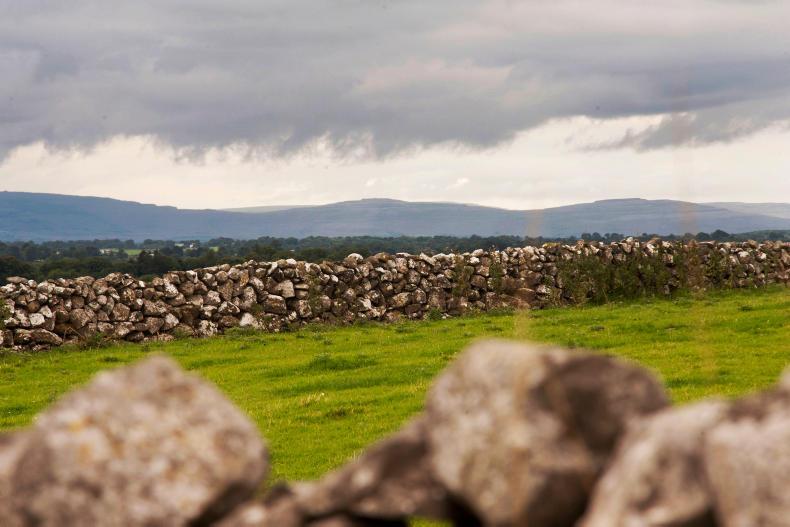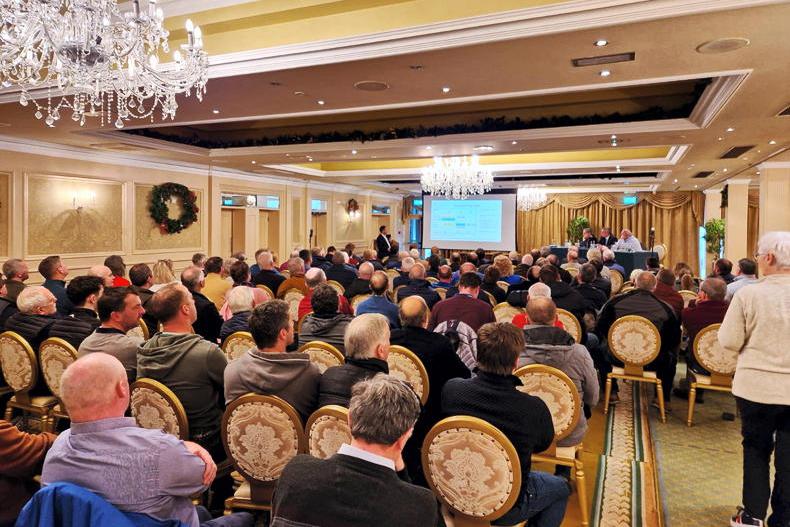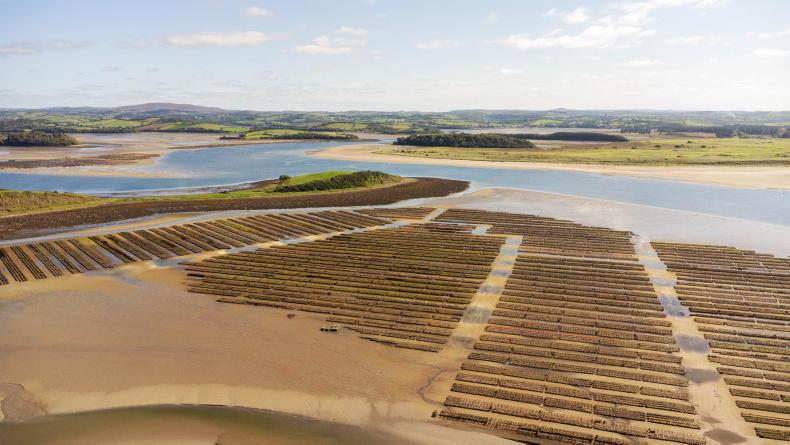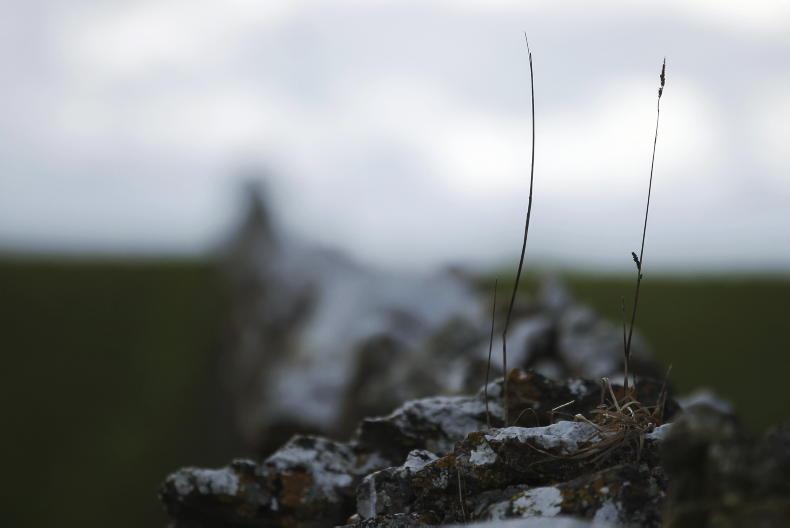Around 4,000 farmers are still waiting for 2017 GLAS advance payments, three and a half months after payments began to issue.
Some €90m was paid out in 85% GLAS advance payments in the first week, beginning 29 November 2017.
The average GLAS payment is €4,155, according to Department of Agriculture figures.
Using the average advance payment of €3,531, this means that just under 25,500 farmers in the scheme received their payment. However, this was from a total of approximately 49,700, leaving 49% of farmers without an advance payment after the first week of payments.
In December , almost 10,500 more farmers received an advance payment. This brought the total number of farmers paid to 36,000 receiving €124m. Those who have not been paid to date are understandably angry.
There have been numerous complaints about the delay, with many farmers pointing the finger of blame squarely at the Department of Agriculture.
That is not to say that farmers are completely devoid of blame, but the complexities of the scheme have been called into question by farmers.
History repeats itself
The scheme, now in its third year, in general has been dogged by delays in getting payments to farmers, with substantial delays also experienced when it came to 2016 payments.
Last February, 9,000 farmers were still waiting for their money and resorted to multiple protests nationwide to highlight the problem.
Turn the clock forward 12 months and on 1 February 2018, there were approximately 8,580 farmers awaiting advance payments for the 2017 scheme year.
The main blockage with payments last year was IT issues, with Department staff having to manually assess each and every GLAS file that did not get paid.
Payment issues continue to affect farmers this year.
According to the latest figures available from the Department, there are still approximately 4,000 farmer who have not received their advance payment. That amounts to €14m missing from their pockets.
There are another 540 farmers out of a total of 2,568 who are waiting on AEOS (Agri-Environmental Options Scheme) payments to issue. They are owed about €1.5m.
Another 335 farmers are waiting for payments to issue through the Organic Farming Scheme (OFS). They are owed about €1.58m.
Why are farmers not paid?
What is significant is that 20% or 10,000 farmers in GLAS were described as ineligible for payments at the beginning of December, with 2,000 of these farmers still ineligible today to receive payments.
The Department said they were ineligible for a number of reasons, including non-submission of commonage management plans (CMP).
However, the facility to submit a CMP had only become available to advisers on 12 October 2017. Farmers have questioned whether it is fair to hold up a payment if the system to submit these CMPs was not available at an earlier stage.
Other issues included non-submission of nutrient management plans, rare breed forms and low-emission slurry spreading declaration forms.
Another major issue that advisers reported was the required re-digitisation of BPS maps, see right.
These delays not only effect GLAS payments but there is a cohort of organic farmers who will not receive their Organic Farming Scheme payment until they receive their GLAS payment, further compounding financial pressures on these farms.
Read more
Department mapping systems incompatible
Calls for changes to Young Farmer Scheme eligibility
Listen: Commonage farmers to be paid €14.50 per hour
Around 4,000 farmers are still waiting for 2017 GLAS advance payments, three and a half months after payments began to issue.
Some €90m was paid out in 85% GLAS advance payments in the first week, beginning 29 November 2017.
The average GLAS payment is €4,155, according to Department of Agriculture figures.
Using the average advance payment of €3,531, this means that just under 25,500 farmers in the scheme received their payment. However, this was from a total of approximately 49,700, leaving 49% of farmers without an advance payment after the first week of payments.
In December , almost 10,500 more farmers received an advance payment. This brought the total number of farmers paid to 36,000 receiving €124m. Those who have not been paid to date are understandably angry.
There have been numerous complaints about the delay, with many farmers pointing the finger of blame squarely at the Department of Agriculture.
That is not to say that farmers are completely devoid of blame, but the complexities of the scheme have been called into question by farmers.
History repeats itself
The scheme, now in its third year, in general has been dogged by delays in getting payments to farmers, with substantial delays also experienced when it came to 2016 payments.
Last February, 9,000 farmers were still waiting for their money and resorted to multiple protests nationwide to highlight the problem.
Turn the clock forward 12 months and on 1 February 2018, there were approximately 8,580 farmers awaiting advance payments for the 2017 scheme year.
The main blockage with payments last year was IT issues, with Department staff having to manually assess each and every GLAS file that did not get paid.
Payment issues continue to affect farmers this year.
According to the latest figures available from the Department, there are still approximately 4,000 farmer who have not received their advance payment. That amounts to €14m missing from their pockets.
There are another 540 farmers out of a total of 2,568 who are waiting on AEOS (Agri-Environmental Options Scheme) payments to issue. They are owed about €1.5m.
Another 335 farmers are waiting for payments to issue through the Organic Farming Scheme (OFS). They are owed about €1.58m.
Why are farmers not paid?
What is significant is that 20% or 10,000 farmers in GLAS were described as ineligible for payments at the beginning of December, with 2,000 of these farmers still ineligible today to receive payments.
The Department said they were ineligible for a number of reasons, including non-submission of commonage management plans (CMP).
However, the facility to submit a CMP had only become available to advisers on 12 October 2017. Farmers have questioned whether it is fair to hold up a payment if the system to submit these CMPs was not available at an earlier stage.
Other issues included non-submission of nutrient management plans, rare breed forms and low-emission slurry spreading declaration forms.
Another major issue that advisers reported was the required re-digitisation of BPS maps, see right.
These delays not only effect GLAS payments but there is a cohort of organic farmers who will not receive their Organic Farming Scheme payment until they receive their GLAS payment, further compounding financial pressures on these farms.
Read more
Department mapping systems incompatible
Calls for changes to Young Farmer Scheme eligibility
Listen: Commonage farmers to be paid €14.50 per hour









SHARING OPTIONS